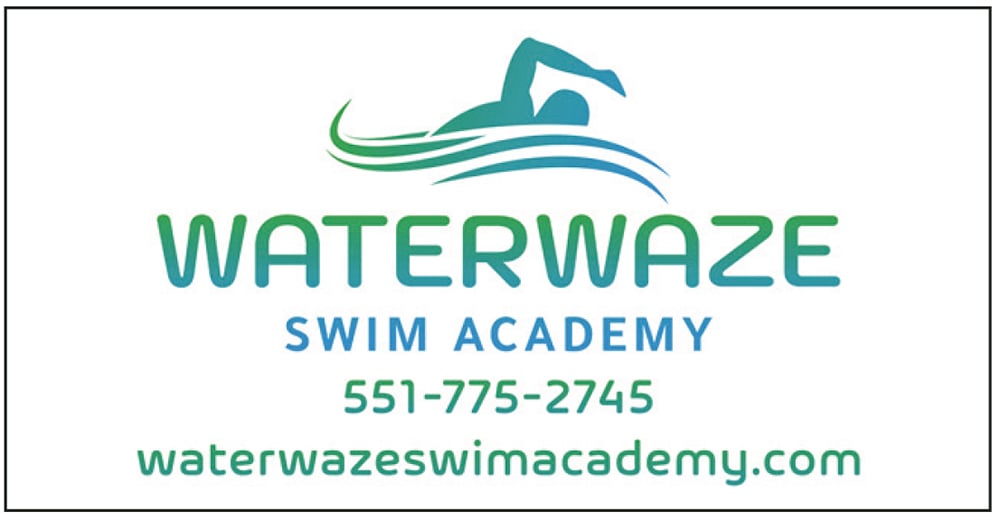
(Courtesy of Waterwaze Swim Academy) One of the benefits of living in Rockland County is how accessible pools are. Many of us have friends or neighbors who are willing to share. Maybe you’re not lucky enough to know the “right people,” but still get invited to pool parties or go to the bungalow colony for the weekend. Practically every camp offers swimming on a daily basis, and many have seasonal trips to waterparks. Swimming is a great activity that provides fun for the whole family. It offers numerous benefits, including sensory input, muscle tone and strengthening, and helps with focus. The problem is that drowning is the sixth leading cause of death worldwide for children aged 5-14 years. Statistically speaking, if you both own a gun and have a swimming pool in the backyard, the swimming pool is about 100 times more likely to kill a child than the gun. Every year in the United States, there are over 4,000 fatal unintentional drownings. Having been in the industry for over 15 years, Waterwaze Swim Academy has made it our goal to train parents, therapists, and educators in what to look for when hiring a swim instructor. Over the next few weeks, this column will address the 10 most commonly asked questions about swimming lessons.
Is treading an effective way to ascertain a child’s safety in deep water?
Treading is not the best way to establish a swimmer’s safety. Our definition of a swimmer is one who is safe in deep water. Strokes and learning how to coordinate the arms and legs come only after the swimmer has achieved safety.
Our time-proven deep-water test requires the swimmers to hang out in the deep for 10 minutes. During this time, they can back float, front float, vertical float, swim, flip over on their back, tread, etc. By the end of the 10 minutes, if they haven’t gotten exhausted or overwhelmed, we can confidently pronounce them adequately safe in deep water.
I spent a few years at the beginning of my career as a summer Aquatics Director at a local JCC. According to the Department of Health, we were required to administer a deep water test to determine a swimmer’s competency in the pool. Very quickly, I started to notice a dangerous pattern. Many of the campers would successfully complete the test. They needed to swim two laps on their front, two laps on their back, and tread for two minutes. What disturbed me was that as soon as they finished, they’d frantically grab the wall where they had to rest, catch their breath or maybe climb out of the pool to recover. At our next staff meeting, I made it clear to the lifeguards that just because a camper technically passed the test—this did not mean that they should be let loose in the deep. Any child who looked fatigued after taking the test was told they would have to retake it another day. This begs the question. If treading doesn’t prove a child’s safety—why is it considered the standard by most camps and swim schools?
I’ve given this a lot of thought and come up with a few possible reasons. The lifeguards who are hired to administer the deep water tests aren’t necessarily qualified to be able to differentiate if a kid is calm or not. And even if they’re told to look out for this, it’s a big responsibility to give to a teenager. In addition, camps don’t have the time or resources to spend 10 minutes testing each child. I believe if they actually gave Waterwaze’s version of the deep-water test, about 50% of kids wouldn’t pass and would therefore be safer over the course of the summer. Some people might look like they’re swimming, but they’re what we call “mobile drowners.” They’re just moving across the pool while thrashing their arms and legs, intent on getting to the wall or side. No one ever thought to question the current system, and it’s possible there are lifeguards who can’t do it either. If your child can’t stop calmly in the middle of the pool, he is not safe.
If you’re not confident in your child’s skills, you can have their swim instructor test them, or you can have them do it next time you’re in the water together, so you can breathe easier knowing that they’re safe in other pools.
Next week we’ll talk about some of the red flags to look out for in a swim instructor and how to determine if an instructor is not qualified.
Stay wet and stay safe!
Swimcerely yours,
Zahava
Zahava Shapiro is the owner of Waterwaze Swim Academy, which has locations in Monsey, Lakewood and Israel. At Waterwaze, we teach swimming to all ages, from 4 months to 99 years old using a gentle approach that prioritizes comfort over skill. Instructors are trained in Total Immersion, Infant Swim and Swim Angelfish methods. Waterwaze swim instructors specialize in people who have been traumatized or affected by a negative experience with water. We believe every person is capable of learning how to swim. You can reach Waterwaze at 551-775-2745 or www.waterwazeswimacademy.com









